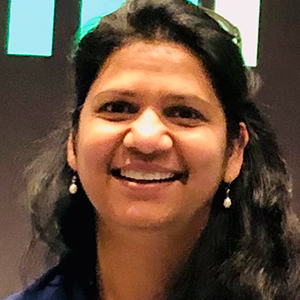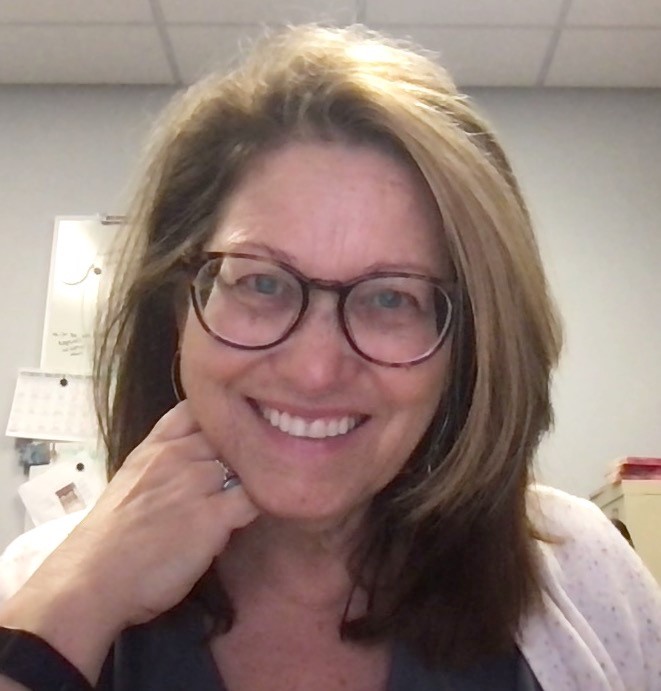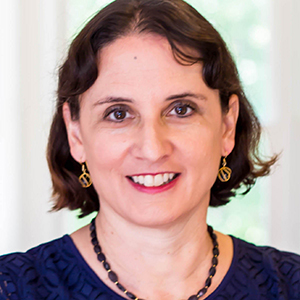Lonely science
During the COVID-19 pandemic, Pascale Guiton lost some of her valuable parasite strains because she was unable to get into her lab to replenish the liquid nitrogen.
Instead of submitting publications before her fourth-year review, a month and a half into her pretenure sabbatical, Krystle McLaughlin was at home taking care of her two small children.
After being told she had been denied a promotion because of low research productivity, Nazzy Pakpour chose to leave her faculty position and seek employment in the private sector.
In August 2019, Megan Filbin won a grant to take her undergraduates to a large medical school to use research instruments not available at her institution. But all the labs were closed to visitors in summer 2020, and complications with limited lab capacity and vaccination requirements stymied the plan in 2021.
As a department chair, Karen Allen had to ramp down the labs of 26 faculty members and then, after reviewing safety evaluations and plans for each one, ramp them all back up.
Sonia Flores and colleagues in her department and division provided meals and vouchers to help pay for dependent care to faculty who were on the front lines fighting COVID-19.
Marlene Belfort said about 2020, “Science became a lonely activity.”
While the COVID-19 pandemic disrupted the professional and personal lives of scientists, some groups were affected more than others. Most were unable to conduct research. Science education, especially skills training, was disrupted. Those who took on childcare, homeschooling or elder care found their lives and work completely upended.
As women in biochemistry, we read reports, such as one by the National Academies of Sciences, Engineering and Medicine, that women and early-career scientists were among the hardest hit. We were worried that efforts to diversify the science, technology, engineering and mathematics workforce might be lost, as women, historically marginalized groups and early-career scientists struggled to meet the double demand of work and new family obligations.
Preliminary data from a study done by University of Michigan–Dearborn faculty showed disheartening statistics and comments from women in STEM about the impact of COVID-19 on their careers and work–life balance, exacerbating existing imbalances. Even more disturbing are changes in student enrollment tallied by the National Student Clearinghouse Research Center; while graduate student enrollment increased significantly, especially in biology and biomedical areas, undergraduate enrollment in those areas plummeted. At undergraduate and two-year institutions, enrollment of undergraduate students declined 8% to 15%, with more precipitous drops in students of color.
Using our personal networks and suggestions from the ASBMB Women in Biochemistry and Molecular Biology Committee, we reached out to women at various career stages and institutions, asking if they’d be willing to be interviewed by one of us for this article. We hoped to learn how they fared, what support was available to them and what worried them but also what they have gained from the experience. We asked how their institutions handled the impacts of the pandemic.
We heard from early- and late-career scientists, department chairs, and those involved in STEM inclusion research. They told us about the direct impact of lost time and research as well as stress, isolation and the erosion of community.
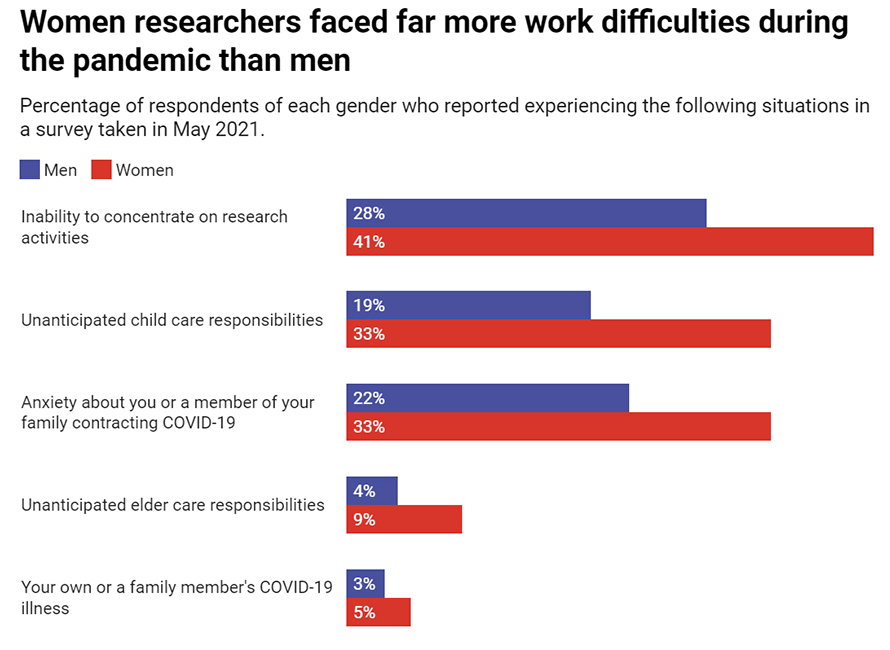
Women told us that the COVID-19 pandemic exacerbated prior inequities in their family and home care time requirements.
Educators who suddenly were unable to be in a lab or a classroom with students had to develop kits or online substitutes, creating asynchronous online lectures and virtual assessment tools. The time required for this meant research took a back seat. Many faculty noted that students quickly adapted to the technology but suffered from the lack of socialization, structure and teamwork.
For early-career faculty, the loss of interaction, mentorship and guidance was difficult to overcome. Without direct intervention and support, some lost faith in the academic system and their own career choices.
University administrators, already overburdened by stress, student mental health problems and the challenge of completely revamping the way we teach science, attempted to compensate by offering to extend the tenure clock, burdening untenured faculty with a choice that weakened their financial and career positions while saving the university money. Few campuses reduced teaching loads so early-career faculty could catch up on lost research time.
Here are some individual stories.
Lost boundaries
Pascale Guiton, an assistant professor in the biological sciences department at California State University, East Bay, said a group of students she had trained graduated without ever being able to work in the lab. Zoom training sessions were an ineffective substitute, and all the animal work she had just started before the pandemic came to a halt.
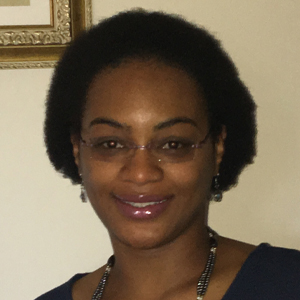
“If the university would hire lecturers to provide relief from teaching loads,” she said, “tenure-track faculty could get back into research labs and make up for work and time lost to the pandemic.”
In summer 2020, Guiton started BIPOC in STEM at CSUEB to give students of color a space to speak and express their fears about police violence and the racial reckoning that was happening around the country, as well as what it means to be a person of color in STEM and higher education. To rally all faculty members to support Black students, faculty and staff, she founded the Alliance for the Black Community that same summer. This all required extra work and was emotionally taxing. Because it was not typical university service, she doesn’t know how much weight this effort will carry in her tenure assessment.
Guiton lost all her parasite strains due to a preventable power outage, she said. Her petition for compensation and a course release was granted, although she was unable to replace all she lost, and her research was seriously delayed.
Guiton said she lost boundaries between work and the other parts of her life: responding to student emails in the middle of night, granting extensions on assignments and spending more hours talking to her students after classes. She had difficulty finding time for simple things like making a meal or walking her dog.
Guiton was concerned about tenure and promotion based on loss of productivity and all the changes in teaching. She has some publications but was hoping to tell a more complete story with research publications. She accepted Cal State’s offer to extend her tenure clock and was given a course release in Fall 2021 to work on getting her lab back up and running. However, this extension should not be the default option, as it means a delay in getting the raise in salary that comes with promotion.
“The impact of the pandemic on faculty workload, especially faculty with children, was not explicitly addressed by Cal State, and the amount of extra work faculty did was not fully appreciated,” Guiton said.
The pandemic revealed that faculty in higher education are not as valued as one would expect, she said. “What they demonstrated to us is that they will continue to operate, whether individual faculty are there or not. It’s up to faculty to stand up and say, ‘There is no university without the faculty.’”
The world we live in now
Krystle McLaughlin, an assistant professor in the chemistry department at Vassar College, is completing her dossier for her fourth-year review. Her work was impacted hugely by the pandemic, she said.
She was set to teach a new biophysical chemistry class in fall 2020, but because she was stuck at home with her children, one of them an infant, without available family or paid help, she wasn’t ready until right before the semester started and was just a little ahead of the students throughout the course.
McLaughlin is a crystallographer but ran into problems similar to those faced by her colleagues doing animal research. “I had started growing some crystals in January 2020 at the start of my sabbatical and they looked really good,” she said, “but then we had to leave and I didn’t even really get a chance to do anything with them. By the time I came back to the lab … everything had dried out.”
McLaughlin faced challenges training her team in fall 2020 when the lab reopened. “It was really hard to build lab camaraderie,” she said. “We couldn’t go out like normally for lunches, do things with them. So I feel like that was really hard for the students in the lab as well as me … it was hard to train them and get connected to them and really mentor them and figure out what they needed.”
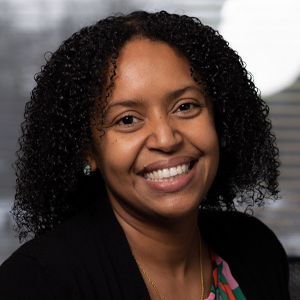
Adapting her courses to online or hybrid modes and developing flexibility for students required a lot of extra work. “Very stressed-out students come talk to you,” she said, “and you know their family is sick, and you know there’s all kinds of things happening. A lot more students are coming with those issues because that’s the world we live in now.”
On a positive note, as a result of hybrid teaching, McLaughlin said she now annotates her PowerPoints; she projects them as she walks around the classroom writing notes on her iPad. It looks like writing on the chalkboard, but it’s notes. Students get a copy later, and she said they have really appreciated this resource.
As McLaughlin prepares for her fourth-year review, she said she is grateful to have taken advantage of the one-year COVID-19 tenure clock extension the college offered; however, she’s not sure if it was enough, as many pandemic challenges are ongoing. “I don't know how they are really going to measure me. … This is going to be the first year where people who are in the pandemic are going up for review.”
She felt supported in the department and said her colleagues have offered help. Her chair helped her negotiate an additional course release because she didn’t get to do research in spring 2020. But it’s still a challenge; she and many of her peers at the same stage haven’t really moved forward since last year, she said.
“I’m not exactly in the same place, but I have moved sort of incrementally — not what I might expect prior to the pandemic frame.”
Promotions denied
Nazzy Pakpour was an assistant professor who recently came up for promotion and tenure after six years at her university — the last two during the pandemic. She was granted tenure, but the tenure committee denied her a promotion. She decided to resign and take an opportunity in industry.
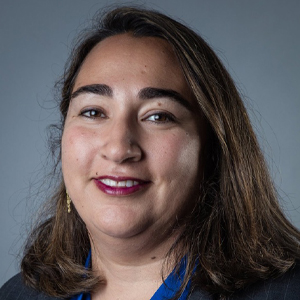
The tenure and promotion committee told Pakpour she could have been more productive during the pandemic in terms of applying for grants, attending virtual conferences and doing more in the lab. She disagreed, saying she went well beyond reasonable expectations: shifting her classes online, creating take-home lab kits for students, holding extended office hours, restarting her lab and mentoring her graduate students through a pandemic and publishing two papers based on her educational research.
Pakpour’s primary research was on malaria transmission and Type 2 diabetes, but for her first two-and-a-half years, her animal research facilities were under construction. She started her research program about a year before the pandemic hit and then had to shut it down and later restart it. She lost all her parasite stocks in a power outage during the pandemic and had to remake all the strains from scratch with limited lab access and social distancing constraints in effect. The school’s veterinarian quit, and she had to wait for a new one to be hired.
“I actually made a timeline in my tenure file where I showed how much time I had access to research space versus how much time I was waiting for things,” Pakpour said. “In the six years leading up to tenure, I have probably had only half the time to do bench work.”
In October 2021, Pakpour was told for the first time in six years that her research did not meet expectations, she said. “I didn’t have clear communication about expectations in terms of tenure and promotion. Indeed, the standards applied to me have changed from year to year because my department has no specific written guidelines.”
Pakpour published four articles about education research, but the committee discounted these because education was not the area for which she was hired. She previously had published two malaria papers, but these were excluded because the data was not generated on the campus. She applied unsuccessfully for an R15 National Institutes of Health grant; slow progress in the lab and lack of preliminary data meant she couldn’t apply for the large institutional grants the committee wanted to see.
Pakpour submitted a rebuttal for her tenure review at the department level, but the committee stuck to their findings. She chose to leave the university rather than go through the process of fighting for a promotion she felt she deserved.
Revival and quick decisions
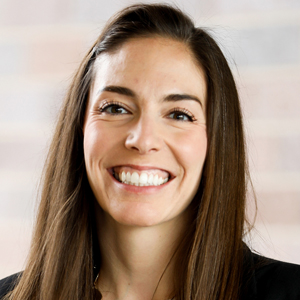
Megan Filbin, an associate professor of chemistry and biochemistry at Metropolitan State University of Denver, had difficulty recruiting students to do research when her campus was fully virtual. She had limited access to equipment, and limited numbers of students were allowed in labs. She had one research student during the lockdown period and now has six, with more wanting to join her lab. The grant that would have allowed her students to train on equipment at the University of Colorado School of Medicine is now in its final year, and she plans to apply for an extension.
Filbin applied for promotion to professor this academic year and said her university has a policy that “reviewers, through every level of review, need to be mindful of perhaps less service and less research due to the pandemic.” In addition, student teaching evaluations optionally were waived in spring 2020. Her university also made decisions quickly throughout the pandemic, which she really appreciated.
A house of cards
Karen Allen, a professor and chair in the chemistry department at Boston University, said that two of the three tenure-track professors in her department took the offer to extend their tenure clock. Not all were women, but all three had children. Keeping up with schedules and tutoring for children doing online education took a lot of parents’ time and affected professional productivity and focus, she said.
A collaborator made the analogy that “Writing a paper is like building a house of cards, you can’t start to make a house of cards and then walk away from it and come back an hour later and expect to find what you’ve done still there,” Allen said.
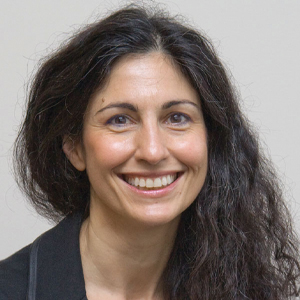
The ability to focus on complex problems has been shattered for some during the pandemic, she said, “so having that extra year is absolutely essential.”
BU granted an additional semester of teaching release for junior professors, or they could opt to have one month of summer salary to help allay the financial loss of delaying promotion, Allen said, adding that it’s hard to quantify all the extra efforts and time spent shifting courses online during spring break in 2020 and then switching to hybrid teaching in fall 2020.
For women, Allen said, the pandemic blurred personal–professional boundaries. They were more likely to experience disruptions in teaching due to interruptions at home and longer days as many started work very early and/or worked very late to accommodate family commitments. As the cook in her family, Allen said she had to make all the meals three times a day; before the pandemic, she only made one or two meals a day.
Clear differences
Sonia Flores, professor of medicine and chair for diversity and justice at the University of Colorado School of Medicine, cited a survey (a work in progress) showing clear gender differences in how the pandemic affected men and women in academia. Women often had a harder time disconnecting from the emotional responsibilities of childcare when they were working at home, she said.
In a focus group to support research and clinical faculty at her institution, she said, a theme that kept bubbling up among women was “the feeling of separation, abandonment, I don’t belong.”
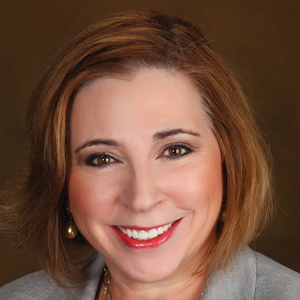
In a male-dominated field, even before the pandemic, women understood they had to work three times harder than male colleagues to get the same amount of recognition, she said. “They relied on the connections they had with the people in their lab, in their offices, and in their units, and in many cases, communications with their bosses. All of a sudden, all of that stopped and they felt even more marginalized and more excluded. The silos that naturally exist became worse during the pandemic.”
Based on a survey of the department of medicine faculty, younger women were affected most adversely by the pandemic because they had to care for children. Even when male spouses were at home, most childcare responsibilities fell on women. Monitoring children and helping them with schoolwork took time away from grant writing. Lack of access to labs and animals delayed research for six to eight months.
Flores’ department asked leaders like her to donate a percentage of their salaries for three months to keep the department operating without resorting to furloughs or cutting salaries of people other than senior administrators. The university later used CARES Act funding to give money to all faculty and staff, irrespective of position, and pay back anyone who took a pay cut.
Lost connections
Marlene Belfort, a distinguished professor in the biological sciences at the University of Albany and senior adviser of the RNA Institute, agreed that the pandemic took the greatest toll on junior faculty. The loss of time to do research, write papers and prepare grants was a more serious disruption to their careers than to those of their more senior colleagues, she said.
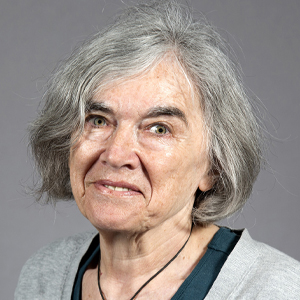
A group Belfort co-founded, Women in Science and Health, promotes networking, mentoring and skill building for faculty, postdocs and staff. Regular events are scheduled, including seminars on inclusion, how to seek mentoring and resources, and how to be that “hand up” for someone else, she said. This type of networking can make a critical difference in times such as pandemic shutdowns, providing the connections that are necessary for both mental health and training.
Women faculty have felt the loss of camaraderie and mentoring keenly, Belfort said. Graduate students lost connections and networking and didn’t even get to meet face-to-face during the first year. Support was only possible via virtual communication, but a resilience training program sponsored by the NIH allowed Belfort to reach out and help graduate students during this difficult period.
To recover from the pandemic, Flores said, words of encouragement are essential. It’s important, she said, to have “someone in a leadership position who’s telling them it is OK — it is OK to take time off to be with your family, it is OK to take time off to grieve.”
Like Belfort, Allen said she has seen more isolation and depression among graduate students. “For all the scientists, but especially the young assistant professors coming up, and the women who are still making their way through STEM, it is so important to support them emotionally to recover from this.”
Allen suggested working one-on-one or forming groups that can talk, network, and share ideas and ways to be resilient. And the best way to get through this isolation for students and faculty? “Be compassionate to one another,” she said. “Find one another, and share solutions and ways to be resilient and overcome.”
Enjoy reading ASBMB Today?
Become a member to receive the print edition four times a year and the digital edition monthly.
Learn moreGet the latest from ASBMB Today
Enter your email address, and we’ll send you a weekly email with recent articles, interviews and more.
Latest in Opinions
Opinions highlights or most popular articles

Women’s health cannot leave rare diseases behind
A physician living with lymphangioleiomyomatosis and a basic scientist explain why patient-driven, trial-ready research is essential to turning momentum into meaningful progress.

Making my spicy brain work for me
Researcher Reid Blanchett reflects on her journey navigating mental health struggles through graduate school. She found a new path in bioinformatics, proving that science can be flexible, forgiving and full of second chances.

The tortoise wins: How slowing down saved my Ph.D.
Graduate student Amy Bounds reflects on how slowing down in the lab not only improved her relationship with work but also made her a more productive scientist.

How pediatric cataracts shaped my scientific journey
Undergraduate student Grace Jones shares how she transformed her childhood cataract diagnosis into a scientific purpose. She explores how biochemistry can bring a clearer vision to others, and how personal history can shape discovery.

Debugging my code and teaching with ChatGPT
AI tools like ChatGPT have changed the way an assistant professor teaches and does research. But, he asserts that real growth still comes from struggle, and educators must help students use AI wisely — as scaffolds, not shortcuts.

AI in the lab: The power of smarter questions
An assistant professor discusses AI's evolution from a buzzword to a trusted research partner. It helps streamline reviews, troubleshoot code, save time and spark ideas, but its success relies on combining AI with expertise and critical thinking.

